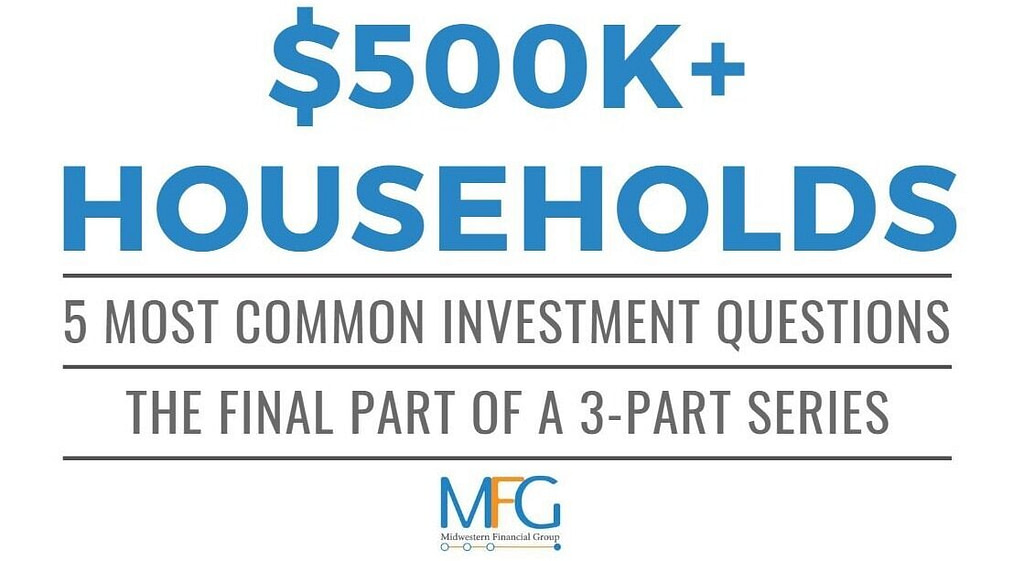We all have a dream of a relaxed, care-free retirement. For many, the promise of a pension throughout retirement helps to make that dream a possibility. A pension provides seemingly guaranteed monthly income with little to no supervision needed.
But low interest rates and rising corporate liabilities have led to a new trend, making that dream a little more complicated – buyout offers for workers’ pensions.
As pension funds’ returns have lagged, and previous failures of companies to adequately fund their employee pension funds have caught up with them, many companies are looking at pension buyouts as a way out.
A lot of considerations go into the calculation of whether a pension buyout offer makes sense for you. The lump sum amount, the time before your retirement, your risk tolerance, your financial goals, and your other assets all need to be considered before making a decision to sell your pension.
How do you determine the right choice for you?
To start, it is important to understand that not all pensions are the same. Depending on your industry or place of work, your decision to keep your pension is more complex:
ADDED RISKS FOR CHURCH-AFFILIATED PENSION PLANS
For many workers in hospitals, private schools and universities, and churches, there is an added risk to your future pension payments. If your employer is religiously affiliated – your pension is unique.
So called “church plans” have an added risk that many other private company pension plans do not. Religious-affiliated pension plans are given special exemptions in the Employee Retirement Income Security Act of 1974, commonly referred to as ERISA. Church-affiliated plans are not held to the same funding requirements or fiduciary guidelines that industry pensions are.
However, the biggest difference in church-affiliated pension funds is their lack of Pension Benefit Guaranty Corporation (PBGC) protection. All ERISA pension plans are insured by the federal government and the PBGC to ensure that, subject to certain limits, those who are retired will receive their pension payments and current employees will receive the benefits that they had been promised.
Church-affiliated pension plans do not have this protection.
This means that if you are offered a lump sum pension payout from your employer who is affiliated with a church or religious group, you are subject to extra risk if you decline the cash out offer.
How much risk?

Just late last year this risk became all too real for workers and retirees of St. Joseph hospital in Providence, Rhode Island. Despite nearly 2,700 workers who had paid into the pension fund, the pension fund declared bankruptcy in late 2017. Retirees are being offered a 40% cut in their pension payments as part of the bankruptcy settlement.
For those living off their pension, their dream of a care-free and relaxed retirement was immediately interrupted.
Because the hospital’s pension fund was church-affiliated and therefore exempt from ERISA requirements and benefits, retirees from St. Joseph hospital are not guaranteed their pension payments. It will be up to bankruptcy proceedings and the courts to determine the amount of benefits St. Joseph hospital workers will ultimately receive.
For those with a church-affiliated pension plan being offered a lump sum payment for their pension, this long-term risk should be carefully considered.
Besides this unique risk for church-affiliated pension plans, there are other aspects to consider as well:
HOW TO DECIDE IF TAKING A LUMP SUM PENSION PAYOUT IS RIGHT FOR YOU
Every pension buyout offer is unique, and every individual’s circumstances are different. A lump sum pension offer may be the right move for a coworker, but be a poor decision for you. At Midwestern Financial Group, we help determine the best course of action for you, depending on your unique circumstances.
Here are a few factors to consider:
PRESENT PENSION VALUE
Your ultimate decision in calculating whether to take a pension buyout offer is dependent on the lump sum amount offered to you, and the future value of that money. That future value is dependent on a couple factors:
1. Expected Returns
2. Time Horizon
As an example, consider: Would it be wise to take a $200,000 lump sum payout today to replace a $3,000 per month retirement pension that you would be eligible for in 15 years?
To answer, let’s start with the assumption that you can safely withdrawal 5% per year from a portfolio through retirement.
If your pension would pay $3,000 per month, or $36,000 per year, how big of a portfolio would you need to produce that income?
Based on a 5% withdrawal rate, you would need a portfolio of $720,000 to safely produce a retirement income of $36,000 ($36,000 ÷ 5% = $720,000).
Can you reasonably expect your $200,000 lump sum payment to grow to $720,000 over the next 15 years?

It turns out, you need a return of about 7% in order to break even on a $200,000 lump sum payout for this pension.
Understanding what type of returns are achievable, and how to best attain them is critical to making an educated decision on your pension buyout offer, because even small variations in returns can lead to very different outcomes.
Taking a lump sum payout eliminates the risk of your employer defaulting on their pension obligations, but puts the burden of managing your investments and achieving suitable long term returns on you. At Midwestern Financial Group, we specialize in helping out clients make informed decisions for situations just like this, and managing those assets if needed.
OTHER FACTORS WE CONSIDER WITH A LUMP SUM PENSION PAYOUT OFFER
DESIRE TO LEAVE ASSETS FOR CHILDREN, CHARITY, OR SPOUSE.
Depending on the terms of your pension, your spouse may be left income from your pension if you pass away, but children and other family members will not.
For those who have a desire to leave assets for charity or family when they are gone, a lump sum payout for your pension may make that possible with careful planning.
LONGEVITY RISK
Specifically, risks associated with both your lifespan and risks related to the long-term financial strength of your pension fund.
Traditional retirees have a huge risk of outliving their savings. Today, a healthy individual may be looking at 30+ years of retirement. That is why proper retirement planning is so important. If your retirement nest egg only lasts 30 years, but you retire at age 60 and live to age 100, how will you make ends meet?
That is why one of the primary benefits of a pension is that your income is provided for as long as you live. Part of the calculation in determining whether to take a pension buyout offer relies on the confidence that the future value of your assets will be able to provide income for as long as you need it.
However, a today’s longer retirements also increases the likelihood that your pension fund could come under financial troubles. Specifically, if your pension plan belongs to a church-affiliated organization, there may be little to no protection of your pension income if the pension fund comes up short.
That means that a worker expecting to start receiving their pension payments in 20 years is facing a lot higher “longevity risk” than someone who is currently receiving pension benefits. Quantifying these longevity risks is very important when evaluating a pension buyout offer.
YOUR OTHER ASSETS, INVESTMENTS, AND LIABILITIES
When deciding on an offer to receive a lump sum for your pension, taking into consideration the value of your other assets, investments, and obligations is very important.
Ask any of our clients, and they will tell you that we thoroughly examine your entire financial picture before making any financial or investment decisions. This is important when creating any financial plan, but extremely important when calculating whether to take a lump sum payout for your pension.
Making a decision on taking a pension buyout offer requires considering your future expenses and debt (such as your mortgage, taxes, and living expenses), other sources of income (such as social security, or other retirement accounts such as an IRA), and more.
WE’RE HERE TO HELP YOU MAKE YOUR DECISION
Every person’s individual circumstances are different. There is no universal answer to the question of whether you should take a lump sum payout for your pension. Making that decision takes time, careful calculations, and consideration of a host of different outcomes and possibilities.
That’s where we come in. At MFG, we help clients make informed decisions about their finances every day. How can we help you? Let’s chat.



